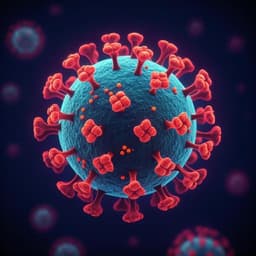
Medicine and Health
Plasmodium falciparum infection in humans and mosquitoes influence natural Anopheline biting behavior and transmission
C. F. Markwalter, Z. Lapp, et al.
In a groundbreaking study conducted by Christine F. Markwalter and colleagues, researchers in western Kenya have revealed striking disparities in mosquito biting behavior. School-age boys are disproportionately affected, significantly contributing to the transmission of Plasmodium falciparum. This research underscores the critical interplay between human and mosquito factors in malaria spread, offering new insights into controlling this enduring public health challenge.
Playback language: English
Related Publications
Explore these studies to deepen your understanding of the subject.







